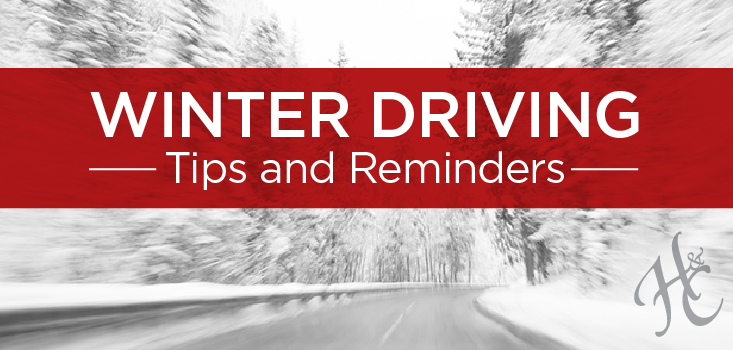
Winter weather is in full force for much of the country, including the Midwest. Snow and ice may make for beautiful scenery, but they can cause major headaches for drivers. Whether you’re driving around town or taking a road trip, accidents can happen when you least expect them. Keep these important safety items in your car so you are prepared for whatever Mother Nature may bring your way:
- Jumper Cables. Keeping a set of jumper cables in your car can help prevent a dead battery from stranding you. Don’t let this be the reason you have to call a tow truck, or pay the bill for one.
- Emergency Lights. Having a warning device, like a flare, and a rechargeable flashlight can help keep you and your passengers safe if you have car trouble at night. Don’t assume that other cars on the road will be able to see your car without a warning light of some kind.
- Windshield Scraper. Ice and snow can build up quickly on windshields and you may not always be able to wait on the defroster to melt it away. Keep a windshield scraper available to easily clear your windows before you head out.
- Abrasive Materials. Abrasive materials like sand or kitty litter can be sprinkled under stuck tires to help them regain traction. Drivers with rear wheel drive can also place large sand bags in the trunk to get better traction and avoid slipping.
- Cell Phone Charger. Don’t let a dead cell phone battery keep you from being able to call for the help you need. Keep a cell phone charging cord and portable battery handy so that you can stay connected.
- Blankets & Layers. If you run out of gas or can’t start your car, having extra layers like blankets, gloves, and hats can help you stay warm inside of your car.
- Food, Water & Medicine. Keep some extra food and water inside of your car in case you get stranded for several hours. Also, it’s a good idea to keep critical medicine with you, especially if you are taking a long road trip.
These safety items aren’t the only thing you need before winter hits. Here are a few additional tips to make sure you and your car are prepared for the road ahead:
- Stay up to date on your car maintenance. Make sure your oil is regularly changed, all of the fluids are filled, and that your tires are inflated and have good tread. Also, check that your windshield wiper fluid is rated for 0 degrees or colder to ensure that it won’t freeze.
- Practice cold weather driving. Make sure you understand how your car works in icy road conditions. Know what your brakes will do if you begin to slide and how to steer into skids.
- Keep your gas tank at least half-full. This will keep your tank from freezing when temperatures drop. It will also help your car stay running and warm should you get stuck in bad weather or need to pull over.
- Use good judgement. Avoid unnecessary distractions like texting and driving and always wear your seat belt. If you’ve had any alcohol, call for a designated driver.
- If you have roadside trouble, stay in your car. Should your car break down, the safest place to be is in your car, not outside of it.
Ultimately, winter weather road conditions can be unpredictable. Just because you may be able to drive in snow doesn’t mean that others on the road know how. If you have any doubt about your ability to get to your destination safely, stay home.
